CHARLES R. WALGREEN FOUNDATION LECTURES
The University of Chicago Press, Chicago 60637
The University of Chicago Press, Ltd., London
1952, 1987 by The University of Chicago
All rights reserved. Published 1952
Midway Reprint edition 1983. Paperback edition 1987
Printed in the United States of America
14 13 12 11 8 9 10
ISBN 978-0-226-18997-0 (e-book)
ISBN 0-226-86114-7
LCN 52-13531
 The paper used in this publication meets the minimum requirements of the American National Standard for Information SciencesPermanence of Paper for Printed Library Materials, ANSI Z39.48-1992.
The paper used in this publication meets the minimum requirements of the American National Standard for Information SciencesPermanence of Paper for Printed Library Materials, ANSI Z39.48-1992.
The New Science of Politics
An Introduction
ERIC VOEGELIN
With a new Foreword by
Dante Germino
THE UNIVERSITY OF CHICAGO PRESS
CHICAGO & LONDON
Posterity may know we have not loosely through silence permitted things to pass away as in a dream .RICHARD HOOKER
FOREWORD, 1987
THIRTY-FIVE years ago, few could have predicted that The New Science of Politics would be a best-seller by political theory standards. Compressed within the Draconian economy of the six Walgreen lectures is a complete theory of man, society, and history, presented at the most profound intellectual level. Interlarded with tongue-twisting technical terms derived mostly from classical Greek, the argument ranges over topics ordinarily discussed only among small circles of scholars.
It was Eric Voegelins great gift, however, to be able to draw out the contemporary political relevance of such seemingly arcane subjects as the Behistun Inscription, the Mongol Orders of Submission, and the controversy over the altar to the goddess Victoria in the Roman Forum. Milking the specialized monographic literature dry of its implications for a theory of order and history, Voegelin writes in a manner that grips the attention of any serious reader.
The books argument can best be understood under Voegelins original title: Truth and Representation . With remarkable erudition and economy of expression, Voegelin discusses in turn what he calls the cosmological, anthropological, and soteriological symbolizations of truth, and then contrasts all of them with gnosticism. Cosmological symbols tend to portray a given societys institutions as a reflection of the order observable in the visible heavens. Anthropological symbols reflect the discovery of the psyche and its attempts at attunement with an invisible order of right judgment beyond the visible order of the heavens. Soteriological symbols indicate the experience of human beings who open their psyches to the unveiling of the unseen measure in time by a God who reaches out to man through grace. Myth, philosophy, and revelation are the three symbolic forms in which the cosmological, anthropological, and soteriological experiences find assuaging expression.
Gnosticism is a symbolic form at least as old as the Christian Era itself; it arose out of the fragile nature of earthly existence, which leaves many people thirsting for a certain and immediate deliverance from so hazardous a condition. The Gnostic creed-movement gives its followers a sense of superiority over the uninitiated, and its sage typically believes that he has become one with the godhead and has achieved liberation from the world of ordinary human beings.
While early Gnosticism tended to be politically quietistic, it later became revolutionary and destructive in the West. This was a result of the coincidence of the revival of ancient Gnosticism with the remarkable expansion of power resulting from the growth of urban centers and increased trade. Joachim of Fiore, a twelfth-century Calabrian monk who founded a new religious order, gave Western civilization the three-stage periodization of history which made possible the conceptualization of modernity itself. Joachims division of history into the Ages of Father, Son, and Holy Ghost was the forerunner of Flavio Biondos periodization of history into ancient, medieval, and modern eras, and of the Third Realm constructions in Condorcet, Comte, Marx, Lenin, and Hitler.
The paradox of modernity is that it is an age that advances and declines at the same time. On the one hand, the centuries since the Renaissance and Reformation have brought forth civil and international wars of unprecedented destructiveness. Many of these wars were without rational cause and waged with objectives impossible to attain. The public life of modern societies has become increasing materialistic and has fostered widespread alienation. The result has been a growing body of literature on the decline of the West. On the other hand, those who hail the modern era as one of stupendous progress also have a case. Prodigious advances in the sciences and technology have led to an unprecedentedly high level of material comfort, health, literacy, and philanthropy.
The thorny question of how a civilization can simultaneously advance and decline may be at least partially answered by analyzing modern Gnosticism. In four pages (12932) Voegelin magisterially summarizes the books argument, maintaining that modern Gnosticism in its various formsteleological, axiological, and activisthas overshadowed what is left of the Mediterranean tradition. While the core of this tradition (Greek philosophy, Judaism, and Christianity) acknowledged the limitation of the human condition and the fundamental uncertainty of mans knowledge about the transcendent divine ground of all the exists, modern Gnosticism has been dedicated to the hubristic attempt to overcome the anxieties and uncertainties of human life by building a terrestrial paradise. However well-intentioned, even the moderate proponents of the progressive program bear a heavy responsibility for the disasters of modernity. However worthy specific projects for ameliorating human misery may be, they cannot serve as substitutes for the inner quest for transcendent reality that motivated Plato, Amos, and Paul. The death of the spirit is the price of progress.
Voegelin is no Spengler, and his closing chaper is full of hope for the possibility of reversing the decline of modern civilization and recovering what in Greek philosophy, Judaism, and Christianity has been lost. The United States and Great Britain contain, for reasons he explains, the largest residue of the Mediterranean tradition, and together they are (or were in 1952) the worlds strongest military powers. Voegelins comments about the Soviet Union are strikingly free of alarm over the prospects of its expansion to world supremacy. With confidence in the future (although refusing to make Gnostic predictions of inevitability) he addresses to each reader an appeal to reorient priorities and accomplish the periagoge (or turning around) urged by the philosopher in the Parable of the Cave. With Plato, Voegelin could have written as his last words We shall fare well.
Eric Voegelins New Science of Politics stands out in bold relief from much of what has passed under the name of political science in recent decades. The opening chapter contains a scathing critique of positivist social science, of its zeal for collecting irrelevant facts and ignoring relevant ones, of its taboo on metaphysical questions, and of its appalling theoretical illiteracy. The New Science is aptly titled, for Voegelin makes clear at the outset that a return to the specific content of premodern political theory is out of the question: One cannot restore political science today through Platonism, Augustinianism, or Hegelianism (p. 2).
Critics who label The New Science of Politics a conservative book might do well to read the work more carefully. Voegelin always rejected attempts to position him, and he was emphatic in counseling, Dont be an Ism-ist! In his combative way, he made apodictic pronouncements about contemporary issues or policies that may seem to some readers inconsistent with a philosophy of history centering on uncertainty in the sense of Hebrews 11:1: Faith is the substance of things hoped for, the evidence of things unseen. Like any thinker, Voegelin wrote in the light cast by his experience. He watched the Austria where he spent most of his early life succumb to Nazism, and chose to escape across the border with only the clothes on his back rather than compromise with so evil a regime. These experiences left him with an understandable distrust of mass movements.
Next page
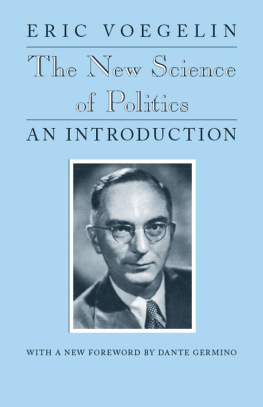
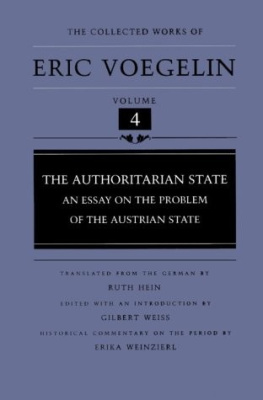
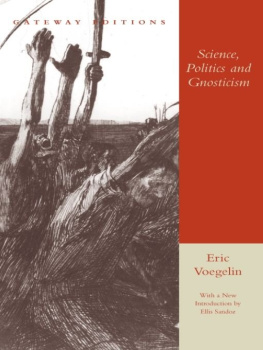
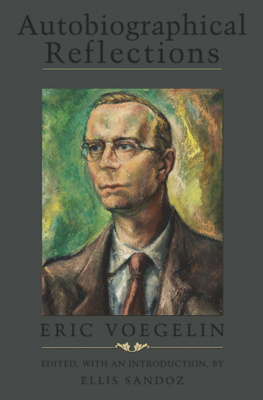
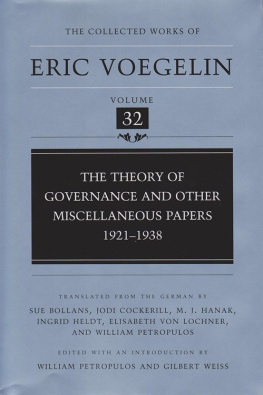
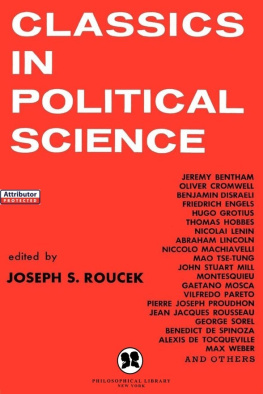
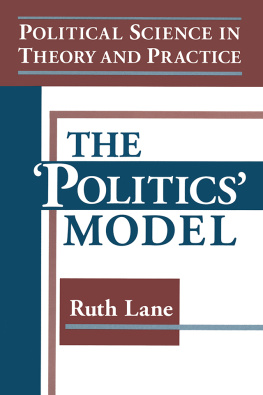

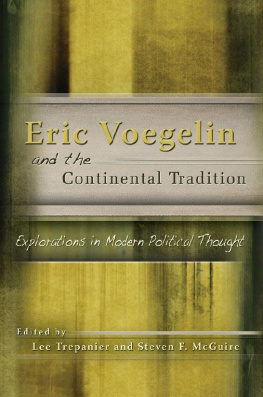
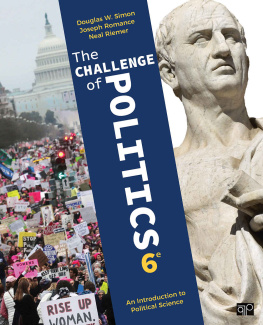
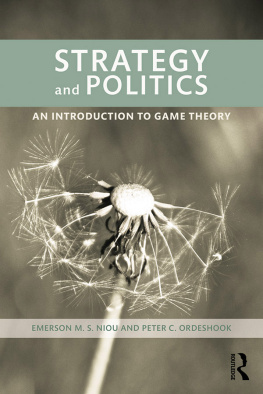
 The paper used in this publication meets the minimum requirements of the American National Standard for Information SciencesPermanence of Paper for Printed Library Materials, ANSI Z39.48-1992.
The paper used in this publication meets the minimum requirements of the American National Standard for Information SciencesPermanence of Paper for Printed Library Materials, ANSI Z39.48-1992.